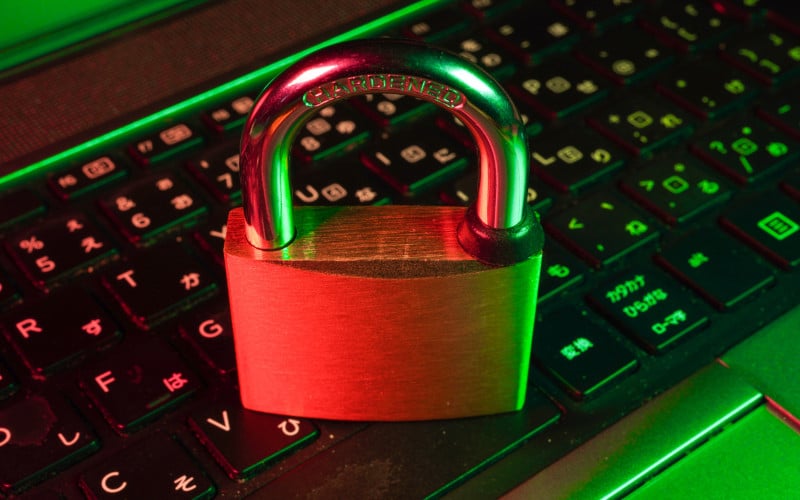Today, it seems like everyone is talking about cyber security. However, the term “cyber security” has been replaced by a new buzzword: ethical hacking. What exactly are these two terms?
Why do they matter to you and your business?
This blog post will explore the differences between cyber security and ethical hacking in hopes of shedding some light on this increasingly popular topic.
What is Cyber Security?
The term “cyber security” has been around for decades. It can have a number of meanings depending on the context it is used in.
In the simplest terms, cyber security refers to protecting electronic devices from hackers and other malicious individuals or organizations. This includes everything from laptops and phones to routers and servers, as well as a variety of other connected devices that you use on a daily basis.
In the context of information technology, cyber security refers to anything that helps stop unauthorized access or appropriation of information systems.
This can include things like establishing secure user access, preventing unauthorized data transmission, and defending against malicious code.
Cyber security includes both technical issues (such as network design, data filtering) and non-technical features (such as physical security). For instance, the CIA has developed a system that lets you authenticate your identity via an iris scanner—without ever typing anything in.
Cyber security can also refer to protecting an organization’s infrastructure from potential threats, whether they are internal or external due to different types of viruses, malware, ransomware attacks, etc.
Cyber security professionals might design various policies in order to ensure that their IT systems remain secure while establishing best practices for employees to follow.
Cyber security must be a priority for any organization because this is the only way they can ensure that their systems are not compromised and data remains safe from outside threats or even employees themselves who might want to steal sensitive information.
With each additional device connected to the Internet, there is an increased need for cyber security.
What is Ethical Hacking?
To better understand cyber security vs. ethical hacking, it’s important to first define what “ethical” means in this context. In short, ethical refers to behaviors that are considered moral and acceptable by society as a whole—something you wouldn’t normally think of as hacking.
Cyber security is a broad term that encompasses many different aspects of protecting your devices from hackers and other bad actors. Ethical hacking, on the other hand, refers to penetrating systems with permission from their owners in order to identify potential vulnerabilities or flaws in cyber security protocols.
Ethical hacking helps reduce any possible vulnerabilities to a system by using their knowledge to identify any potential weaknesses. This information is then used to fix these problems before an attack could happen.
An ethical hacker is someone who identifies and reports security vulnerabilities on a system or network as an unpaid service. This type of person will use the same tools and techniques used by malicious hackers, but their intentions are completely different—they want to protect against attackers!
The goal of an ethical hacker is to identify and prove vulnerabilities within a system or network so that they can be fixed before someone with malicious intentions finds them.
Ethical hackers use the same tools as black hat hackers, but their motives are completely different. Their goal is not to steal information (or worse) but instead report on any potential security issues they find. This allows the information technology team to fix these security vulnerabilities in a timely manner.
What’s the Difference Between Cyber Security and Ethical Hacking?
Cyber security focuses on protecting the IT system of an organization while ethical hacking focuses on helping protect against potential threats to the system. Therefore, both play different roles in maintaining the systems; however, they ultimately serve the same purpose which is helping ensure that your data remains safe.
Both cyber security and ethical hacking have the same goals, but it is just a matter of how they go about achieving them.
Cyber security works to protect your systems by using their resources and knowledge base while ethical hacking helps achieve this goal by testing those resources and identifying any potential weaknesses in the system.
Another difference between cyber security and ethical hacking can be seen in who is responsible for each role.
In cyber security, it takes a team of people to ensure that all their IT systems are safe and secure from potential threats while ethical hacking can be completed by a single person or even multiple people depending on the size of your organization. For example, if you have 500 employees then it might take more than one person to help identify any vulnerabilities in your system.
The final difference between cyber security and ethical hacking is the time frame in which these two roles take place.
Cyber security prepares for a possible attack or other types of threats by following a set plan that has been established ahead of time while ethical hacking does not have an exact timeline they follow, but they do have a specific list of things that need to be completed during the process.
For example, an ethical hacker might check your backup system first or maybe start with looking at how data is being transmitted from one location to another securely. Therefore, it depends on what particular task needs to be done in order for them to complete their job successfully and identify any potential vulnerabilities in your system.
Is Ethical Hacking a Good Career?
Ethical hacking has become increasingly popular and is now a career path that many professionals are considering pursuing. This role requires people to think critically, analyze situations quickly and develop strategies on how they will move forward in order to ensure the safety of an organization’s systems and data.
If you enjoy planning out ways to fix potential problems and enjoy the challenge of trying to identify any flaws in a system, then you might want to consider becoming an ethical hacker.
Although this career does require some previous experience with IT systems and technology infrastructure, it is not necessarily required for someone who wants to become an ethical hacker.
Is Cyber Security a Good Career?
If you are interested in cyber security, then you will need to have a much more extensive background within IT systems and infrastructure in order to be successful. It is for this reason that many people who are interested in becoming cyber security professionals typically start out as ethical hackers first before they can move forward with their career path.
Ethical hacking provides the perfect platform for someone new to IT systems and infrastructure to get their feet wet and help prepare them for a possible career in cyber security, especially if they find out that this is not the right path for them.
Cyber security is a broad term that does not only encompass ethical hacking but there are many professionals who work in cybersecurity-related jobs.
For example, some people work to protect data from outside threats by using various types of software and hardware systems while others might be responsible for managing the entire IT infrastructure of an organization including any type of software and hardware that is used within the company.
Cyber security professionals might design various policies in order to ensure that their IT systems remain secure while establishing best practices for employees to follow.
Conclusion
In the end, it’s important to remember that cyber security and ethical hacking are two different terms with very specific meanings. Cyber security is a general term for protecting your company from digital threats as well as preventing the loss of information through unauthorized access or accidental deletion.
Ethical hacking entails testing software and networks in order to find vulnerabilities before an attacker can exploit them. The most important takeaway here is that you should always work with a trained and experienced cyber security team.






